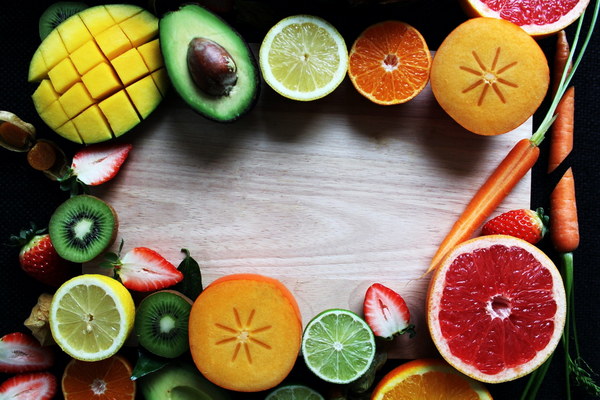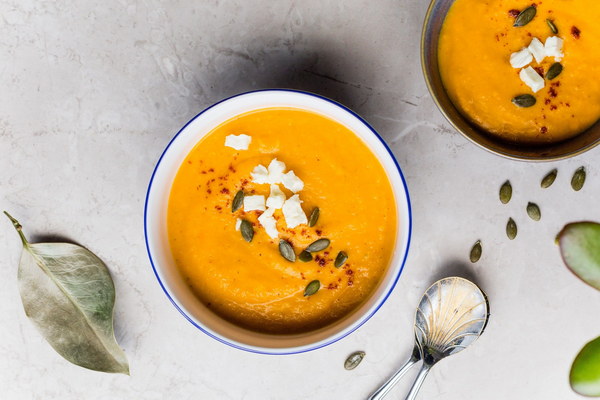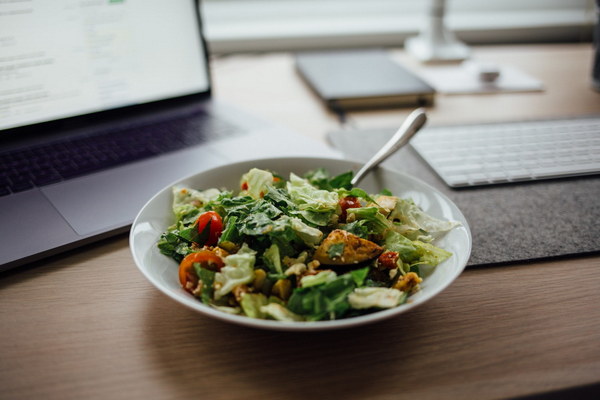Nourishing Your Way to Wellness A Comprehensive Guide to Spleen and Qi Deficiency Diet Therapy
In the realm of traditional Chinese medicine, spleen and qi deficiency are common imbalances that can lead to a variety of health issues. Spleen and qi are fundamental to the body's function, and when they are out of balance, it can manifest in symptoms such as fatigue, weakness, poor appetite, and digestion problems. To restore balance and vitality, diet therapy plays a crucial role. This article delves into the world of spleen and qi deficiency diet therapy, offering a comprehensive guide to nourishing your way to wellness.
Understanding Spleen and Qi Deficiency
In traditional Chinese medicine (TCM), the spleen is responsible for the transformation and transportation of nutrients, while qi is the vital life force that animates the body. When either the spleen or qi is deficient, it can lead to a variety of symptoms. Spleen deficiency is often associated with poor digestion, weight gain, and a feeling of heaviness in the body. Qi deficiency, on the other hand, can result in fatigue, weakness, and a lack of energy.
The Basics of Spleen and Qi Deficiency Diet Therapy
The foundation of spleen and qi deficiency diet therapy lies in the principle of balancing the body's yin and yang, and the five elements—wood, fire, earth, metal, and water. Foods that are warm, nourishing, and grounding are typically recommended to strengthen the spleen and boost qi.
Foods to Include in Your Diet
1. Root Vegetables: Carrots, sweet potatoes, and radishes are excellent for strengthening the spleen. They are rich in vitamins and minerals that help with digestion and absorption.
2. Quinoa: This gluten-free grain is a great source of protein and contains B vitamins, which are essential for the production of energy.
3. Legumes: Beans, lentils, and chickpeas are high in protein and fiber, which aid in digestion and help to build qi.
4. Nutritious Grains: Oats, barley, and brown rice are all beneficial for the spleen and qi. They are easy to digest and provide a steady source of energy.
5. Seeds and Nuts: Almonds, walnuts, and sunflower seeds are not only nutritious but also help to strengthen the spleen and qi.
6. Herbs and Spices: Cinnamon, ginger, and turmeric have warming properties that can help to stimulate the spleen and enhance digestion.

7. Meat and Poultry: Chicken and lean pork are good sources of protein and can help to build qi. However, it's important to choose organic and grass-fed options to avoid ingesting hormones and antibiotics.
Foods to Avoid
1. Cold and Raw Foods: Cold foods can weaken the spleen and qi. This includes raw fruits and vegetables, cold drinks, and ice cream.
2. Spicy and Acrid Foods: These foods can irritate the spleen and lead to further imbalances. This includes spicy peppers, garlic, and onions.
3. Fried and Greasy Foods: These foods are difficult to digest and can burden the spleen, leading to more deficiency.
4. Excessive Sugar and Refined Carbs: These foods can create dampness in the body, which can exacerbate spleen and qi deficiencies.
meal Planning and Cooking Techniques
When planning meals for spleen and qi deficiency, it's important to focus on warm, cooked dishes that are easy to digest. Here are some tips for meal planning and cooking techniques:
- Steam or Boil: These cooking methods help to preserve the nutrients in foods while making them easier to digest.
- Simmer: Slow cooking can help to break down tough fibers and make nutrients more accessible.
- Soups and Stews: These are excellent for warming the body and providing a variety of nutrients.
- Herbal Teas: Drinks made from herbs like ginger, cinnamon, and licorice root can help to stimulate digestion and boost qi.
Conclusion
Spleen and qi deficiency diet therapy is a holistic approach to addressing common health issues that arise from these imbalances. By incorporating the right foods and avoiding those that can exacerbate the problem, you can nourish your body and restore balance. Remember, it's important to consult with a healthcare provider or a TCM practitioner before making significant changes to your diet, especially if you have underlying health conditions. With the right approach, you can embark on a journey to wellness that will leave you feeling revitalized and energetic.









